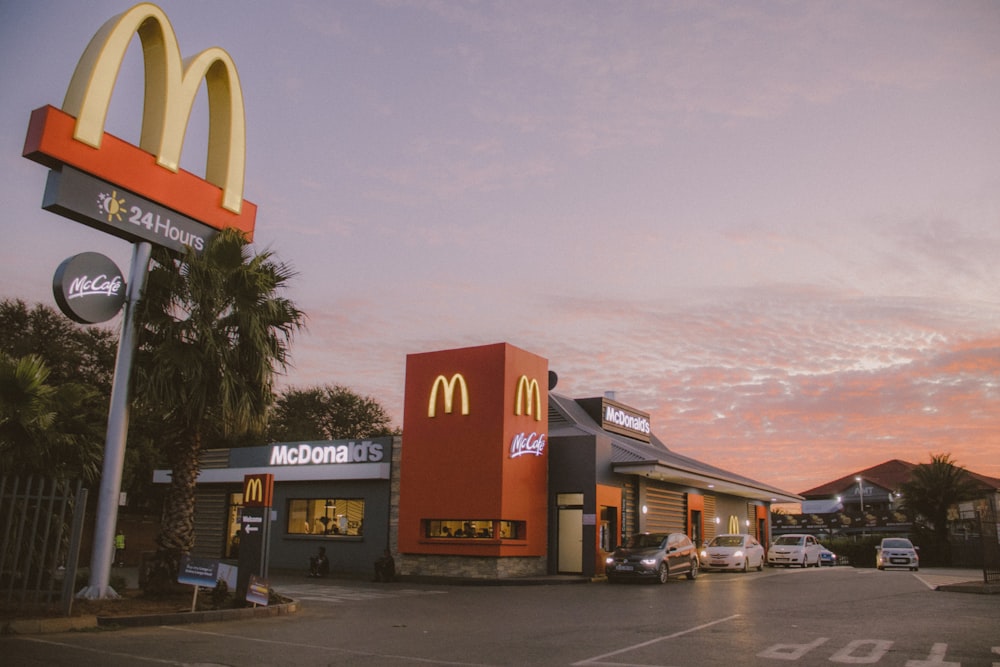Andrew Tumilty: Poilievre might need a new business model
McDonalds isn't a burger company. It's a real-estate business. What business is the modern CPC in? Anger, or governing?
By: Andrew Tumilty
The Founder is a 2016 film that tells the story of how McDonald’s became the corporate icon we know today. There is a pivotal moment when the title character, Ray Kroc, has an epiphany, and realizes that he is not in the burger business — he is in the real-estate business. That “ah-ha” moment is how a regionally popular burger chain became one of the best-known brands and most successful corporations on the planet. It never would have happened if Kroc continued working under the idea that he was selling burgers.
If Pierre Poilievre ever wants to be prime minister, he is going to need to understand that however his business started, its mission needs to change to reach the level of success that he wants.
Poilievre has an inherent talent for getting under the skin of upper and lower-case liberals alike. Coupled with his effective communication skills, this made him an ideal critic both in and out of the House of Commons. It helped vault him into the spotlight of Conservative politicians in Canada, a rise that culminated with him winning the leadership of his party over seven months ago, and becoming Opposition Leader.
So, now what?
By his own admission, Poilievre says he’s running for prime minister. Many people, myself included, are happy to make our former social studies teachers proud by pointing out that he is not, because no one does. Practically speaking though, yes, he is. Poilievre can say he’s running for prime minister, because the bulk of voters — who had actual lives in high school when some of us were memorizing Robert's Rules of Order — don’t see the distinction. Or, if they do grasp the inner workings of a parliamentary democracy, they don’t care.
If the Conservatives win the next election, Poilievre will be prime minister and whether they want him to succeed or not, that is all many voters need to believe his claims.
Poilievre may say he’s running for prime minister, and a wide swath of voters may believe he is, but what he has yet to do is start acting like he is running for prime minister. This distinction does matter, and demonstrates Poilievre may not fully grasp the business that he is in.
Recently we’ve seen Poilievre continue to wage war against the CBC. He has called for it to be defunded, and attacked the credibility of the Canadian Press by association when they asked about this proposal. He implored Twitter’s CEO Elon Musk to label the CBC government-funded media — in fairness, Musk doesn’t seem to get his business either, so maybe it’s a kindred spirit thing for Poilievre. In any case, Musk seems to have listened.
Not content to be combative, he also went out of his way to appear as petulant as possible recently. First, engaging NDP leader Jagmeet Singh in a Twitter spat over who was angrier at Galen Weston. It is unclear how this exchange was meant to lower the price of groceries for Canadians, though it may have lowered opinions of both leaders.
Poilievre then released a letter that ought to have been addressed to the Right Honourable David Johnston, but which was instead sent to “Dear Rapporteur.” The letter was brief, just long enough to question Johnston’s integrity in investigating donations to the Trudeau Foundation. Donations that happened when Mr. Johnston was not involved with the foundation, as he was busy serving as Canada’s governor-general.
Were staffers ultimately responsible for these communications? Of course. Still, they went out under Poilievre’s name after many eyes saw them and thought this was the best way to showcase their man as a future leader of the country.
Poilievre may have made a name for himself as a rage farmer and petulant partisan gladiator. It worked, as far as it went. He’s the leader of the opposition and the Conservative party, and neither of those things is easily accomplished. If he wants to be prime minister, though, that cannot continue to be the core principle of his business.
He needs to appear to be the leader of a government-in-waiting. He needs people who don’t hate Justin Trudeau to vote for him. He needs to assure Canadians that faced with a crisis, he is capable of offering more than fundraising memes and hyperbolic rhetoric.
In short, he needs to understand he is selling the idea of Pierre Poilievre as prime minister, and to do that, he ought to start acting like one.
Or maybe I’m wrong. The caveat to all of this is that Poilievre may have a better read on the mood of the electorate than anyone else. Maybe there is a large enough market of angry voters to put him in the PMO by selling just to them. He certainly drew no shortage of supporters to his rallies doing just that in the leadership race. That said, few businesses succeed by selling to only one group of consumers, and the past few federal elections show that, strategically, Conservatives should want to keep as many paths to victory open as possible.
He can start doing that by giving up on selling angry burgers, and pitch a vision of what a Poilievre government can do for Canadians instead. Assuming, of course, he has one to sell.
Andrew Tumilty has crafted strategic communications and advice for local Liberal candidates and central party campaigns. He is a senior consultant for strategic communications and issues management with Enterprise Canada in Toronto. Follow him on Twitter at @AndrewTumilty
The Line is Canada’s last, best hope for irreverent commentary. We reject bullshit. We love lively writing. Please consider supporting us by subscribing. Follow us on Twitter @the_lineca. Pitch us something: lineeditor@protonmail.com


